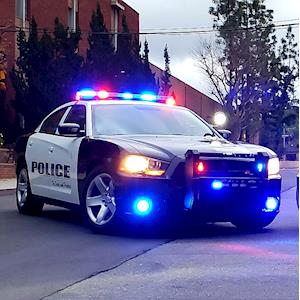I've collected 50 of the best questions I've heard as an author (along with my replies) and I'll present them here in bunches of 10 or so. If you're an author, consider how you would answer. If you're a blogger/reviewer/podcaster who hosts writers, consider using (or adapting) them.
- What literary
pilgrimages have you gone on?
I’m from Massachusetts, so I’ve made the pilgrimage to Concord
to visit the homes of Thoreau, Emerson, and Hawthorne. I stood at Hawthorne’s
stand-up desk—it folded up against the wall—and marveled that the bookshelves
were easily removed in order to throw them out the nearby window in case of a housefire.
The books were that valuable.
- What is the
first book that made you cry?
Probably Black Beauty. I cannot bear cruelty to animals.
It made writing “The Kill Floor” difficult, as it centers on the brutal slaughterhouse
industry and the abusive Concentrated Animal Feeding Operations connected to
them.
- What is the most
unethical practice in the publishing industry?
Among writers, it’s plagiarism. Among publishers, the most tangled
ethical problems come from the “Pay to Publish” companies (often called Vanity
Presses), which make promises that may not be delivered in the way expected,
and for an exorbitant fee. They’re to be distinguished from “hybrid” publishing
arrangements where writers share the cost of publishing but receive higher
royalties and professional editing, art, distribution, and marketing/promotion services.
- Does writing
energize or exhaust you?
Both. The process is so focused that it demands full
concentration in a ‘zone’ requiring a dozen decisions per second, and when it
goes well, it’s a rush. If I hit a block or write myself into a corner, it’s
deflating. In either case, I run out of gas after two, three hours.
- What are common
traps for aspiring writers?
The most common is feeling that one can write only when
‘inspired.’ Writing takes more perspiration than inspiration. You must put your
seat in the seat on a regular basis. It needn’t be every day, but you must
remember, in Woody Allen’s words, “80 percent of life is showing up.”
Perfectionism is another trap. It prevents writers from getting
the whole story on paper, where it can later be shaped. You cannot keep going
over and over the same word, sentence or scene.
- Does a big ego
help or hurt writers?
A healthy ego helps writers and the work. By that, I mean
the writer must summon enough self-confidence to believe the work is do-able
and worth doing. A proper humility allows the writer to focus on the work and
not himself. It’s all about the work.
- What is your
writing Kryptonite?
Procrastination. It’s like exercise, really. I don’t like to do
it, but I feel much better about myself afterwards—and I’ve improved myself. If
I skip exercise for a few days, it’s harder to resume. Same with writing.
- Have you ever
gotten reader’s block?
Only for books that don’t engage me. I’ve gotten better at
shutting a book and saying, ‘this isn’t worth reading on.’ On some occasions, I
stop and realize, “I’m not getting this.” So I slow down and make an
extra effort.
- Did you ever
consider writing under a pseudonym?
An author’s name is a ‘brand,’ and so if I decide to write something
decidedly different from what readers expect when they see my name on it, I’d
consider it. “Different” for me would be Fantasy or YA. If a publisher insisted
on it for marketing purposes, I probably wouldn’t object. But I won’t ever send
out material under a pseudonym as a way to get under an agent’s radar. That’s
deceptive and unethical.
- Do you try more
to be original or to deliver to readers what they want?
You must be yourself and use your own voice. On the other hand,
certain commercial genres have built-in expectations and the writer must
deliver or the seasoned reader will be disappointed. Take Hallmark Christmas
movies, for example. They have predictable formulas on purpose, and viewers actually
want them so, to be emotionally satisfied—much like going to a particular
restaurant over and over for the same experience. The crime genre, however, is
diversified enough to allow a writer to break from some conventions while
keeping to others, such as “fair play” with clues in a puzzle-style mystery.
- Do you think
someone could be a writer if they don’t feel emotions strongly?
Anyone who has gone through adolescence has felt emotions
strongly.


